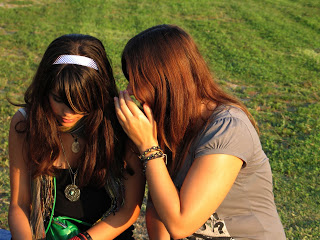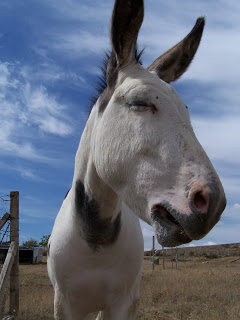
The other day the Lovely K. and I were having another conversation about secrets. In fifth grade, the girls spent much of their recess time (and any other time they can find) not playing, but talking, chatting, chewing the fat. They share bits and pieces of their stories and weave together a bigger story (the story of
us, rather than just the story of me) out of the fragments. This is a vital social activity, one that promotes friendship, trust, and social cohesion. It’s an act of culture-building. But anyone can tell you it also can foment discord. Ah, secrets! Sometimes the line between social cohesion and tribalism or cliqueishness is hard to see and easy to step over. My daughter and I have talked about gossiping and secrets, and about the destruction it can cause. Secrets often have their start in shame, and although it’s easy for me to say, “Don’t do anything you will be ashamed of,” it’s not always such easy advice to follow.
Social courage may represent the biggest challenges for tweens and teens.
Here is a story about King Midas (yes, the one with the golden touch, which had by now been revoked) and his secret shame, and what became of him.
Pan once boasted that his music was superior even to Apollo’s, and King Midas, who was Pan’s friend, agreed. Oh, do not take sides against the gods! Apollo brought the two before him for a simple demonstration. “Play your flute upside down,” Apollo commanded Pan. Naturally, no sound could come out, and while poor Pan struggled to produce music, Apollo turned his own lyre upside down and played as beautifully as ever before.

To King Midas, the god now turned his scornful glance. “You have the ears of a donkey,” he said.
In the twitch of a donkey’s tail, Midas’s ears grew tall and furry, a visible shame and humiliation to the king. To hide his embarrassment, the king took to wearing hats with tall wings on either side (his ears could fit inside, you see), and nobody but his barber knew the secret.
The barber, however, found that keeping the secret was more than he could stand. He must tell someone! In desperation, he ran to a meadow and dug a hole in the ground. Then he whispered into the hole, “King Midas has the ears of a donkey!” and filled it in with dirt again, breathing a sigh of relief.
Very soon, however, a bed of reeds sprang up in the meadow. Every time the wind passed through them they rustled and whispered together, “King Midas has the ears of a donkey!” Anyone nearby could plainly hear it, and soon enough the secret was spread far and wide. Destroyed by shame, King Midas ran to the wilderness to live alone, and there he lived out his days.
I’ve counseled the Lovely K. to say, “No thanks!” if someone offers to share a secret. But quite often, secrets are thrust upon us. They are always an unwelcome burden, one we are not allowed to put down without permission, one that gets heavier and heavier over time.
The intimacy and bonding of whispered conversation can be a treasure, but kids need courage to step outside that delicious whisper circle when somebody glances around, grins, and says, “Guess what I heard?”
 The other day the Lovely K. and I were having another conversation about secrets. In fifth grade, the girls spent much of their recess time (and any other time they can find) not playing, but talking, chatting, chewing the fat. They share bits and pieces of their stories and weave together a bigger story (the story of us, rather than just the story of me) out of the fragments. This is a vital social activity, one that promotes friendship, trust, and social cohesion. It’s an act of culture-building.
The other day the Lovely K. and I were having another conversation about secrets. In fifth grade, the girls spent much of their recess time (and any other time they can find) not playing, but talking, chatting, chewing the fat. They share bits and pieces of their stories and weave together a bigger story (the story of us, rather than just the story of me) out of the fragments. This is a vital social activity, one that promotes friendship, trust, and social cohesion. It’s an act of culture-building.
 What I suggest is that taken as a whole, this collection of skills, techniques, stories and bits of information might make the world look and feel less dangerous to a boy. Building a strong interior locus of control – that’s what this is a handbook for. Also available: The Pocket Dangerous Book for Boys: Things to Do
What I suggest is that taken as a whole, this collection of skills, techniques, stories and bits of information might make the world look and feel less dangerous to a boy. Building a strong interior locus of control – that’s what this is a handbook for. Also available: The Pocket Dangerous Book for Boys: Things to Do